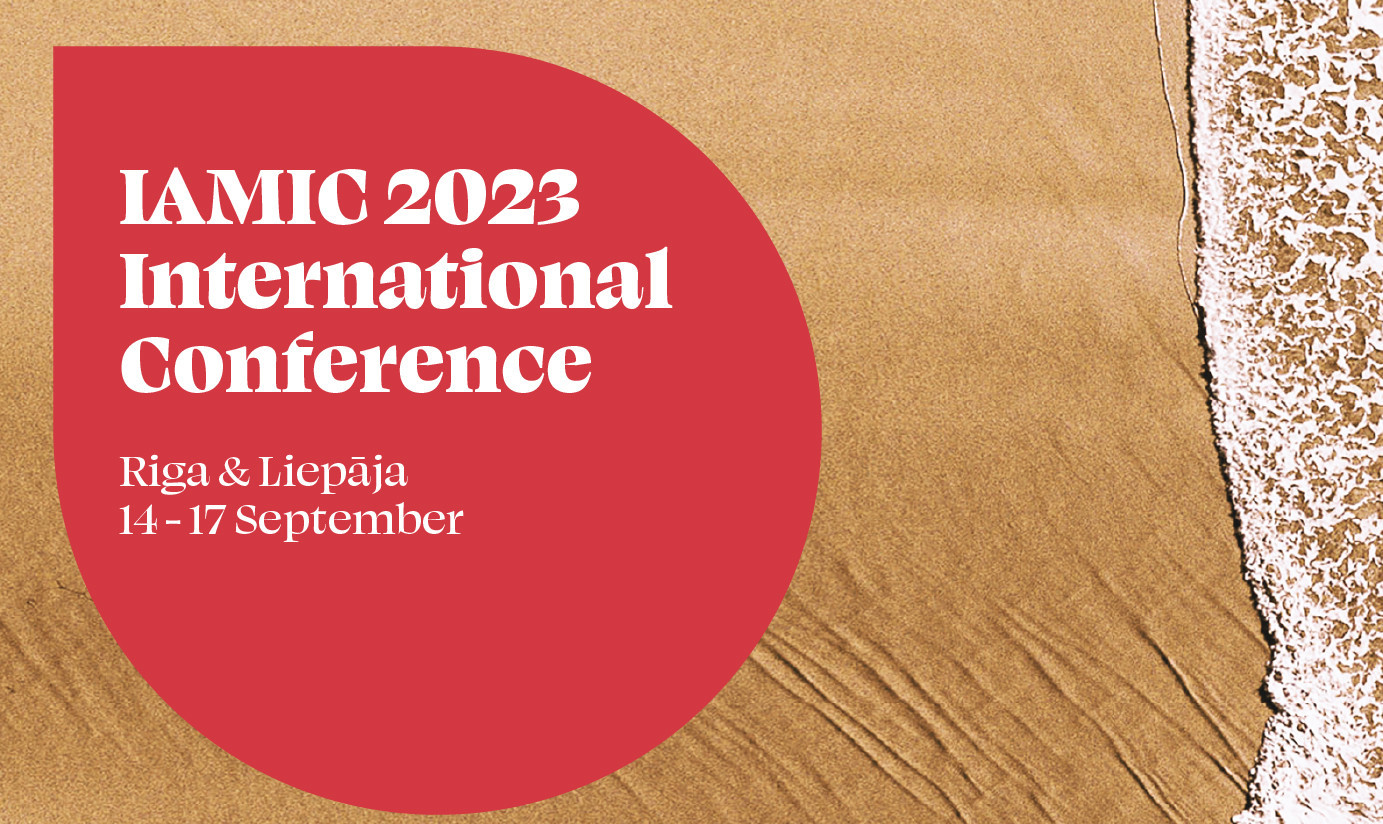IAMIC (International Association of Music Centres) is an international network of organisations that collectively and collaboratively provides information and promotes the music of their countries or regions. Each year IAMIC hosts a conference on important subjects for the music sector. This year the international conference is organized by the Latvian Music Information Centre and took place from September 14-15 at the National Library of Latvia and from September 16-17 at the Great Amber Concert Hall in Liepāja.
The speakers and panelists of the conference discussed a series of important questions for the field of music: What is the future of music education and what role it plays in audience development? How to retain the audience in the digital era? What constitutes a healthy music ecosystem? Censorship/self-censorship versus freedom of expression. What are the emerging trends in contemporary choral music? Contemporary/alternative music and it’s role and challenges in the fabric of culture today: how to maintain it’s own unique voice while maintaining broader appeal? What role AI will play in the future of music creation? What is the future of music NGO’s and how can they continue to serve the music sector?
Alongside IAMIC members, the conference featured lectures and panel discussions from experts of Riga Cathedral Choir School, Jāzeps Vītols Latvian Academy of Music, Latvian Radio Choir, Latvian National Symphony Orchestra, Latvian Academy of Culture, Liepāja University, Institute of Electronics and Computer Science, and others.
__________________
IAMIC 2023 Conference hosted by Latvian Music Information Centre Riga, September 14 / Latvian National Library
Līga Vinogradova (PhD, Researcher / Latvian Academy of Culture) is a researcher at the Institute of Arts and Cultural Studies, Latvian Academy of Culture. She holds the position of docent, specializing in the sociology of arts and culture, as well as research methodology. Līga has been actively engaged in academic and applied studies since 2013, focusing her research on a range of topics including intangible heritage, cultural consumption, and audience research within cultural organizations. She has notably contributed to various research initiatives, including the State research programme "Habitus / Sustainability of Latvian Cultural Traditions in an Innovative Environment" (2014-2018), the European research and innovation programme "Horizon 2020" project CoHERE: "Critical Heritages: Performing and Representing Identities in Europe" (2017-2019), and the Fundamental and Applied Research Project "Striving Towards Participatory Engagement in Museums: Inquiry into Museum Education Practice in Latvia / MEET" (2023-2025). In 2021, Līga defended her PhD in sociology. Her doctoral thesis delved into the role of emotions within the context of the Song and Dance Celebration tradition.
The study on the ecosystem of the Latvian music field was carried out within the framework of the CARD project ("the Cultural Capital as a Resource for Sustainable Development of Latvia") implemented by the Institute of Arts and Cultural Studies of the Latvian Academy of Culture (LAC). One of the tasks of the CARD project was to analyse the cultural ecosystem of Latvia and identify its operator groups, their relationships, and impacts in order to assess the resources of the arts and cultural capital in Latvia [LAC 2020]. This research examines the Latvian music field as a smaller case within the cultural ecosystem of Latvia. The key theoretical concept used in the research is 'ecosystems' - the idea of culture as an ecology that reveals a larger system in a non-hierarchical way [Holden 2015]. John Holden's concept of the ecology of culture provides further methodological tools to analyse cultural networks within an ecosystem. The approach suggested by Holden is social network analysis (SNA) [Holden 2015]. Social network analysis (SNA) holds potential benefits for studying a cultural ecosystem, empirical studies on its application for measuring a cultural ecosystem, however, its associated limitations remain incomplete. The aim of the paper is to analyse the advantages and limitations of studying a cultural ecosystem using SNA. Two research questions are set: (1) How to analyse the ecosystem of Latvian music field and identify the main operator groups and their relationships? (2) What are the advantages and limitations of using SNA in studying the ecosystem of Latvian music field?
KEYWORDS: social network analysis, culture network, ecosystem, art worlds, music field, the sociology of arts

